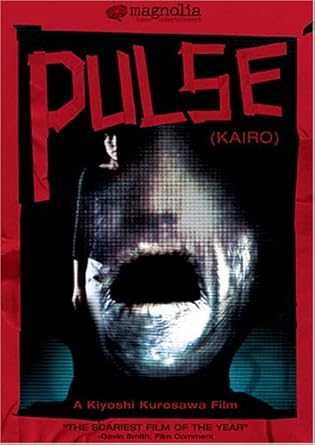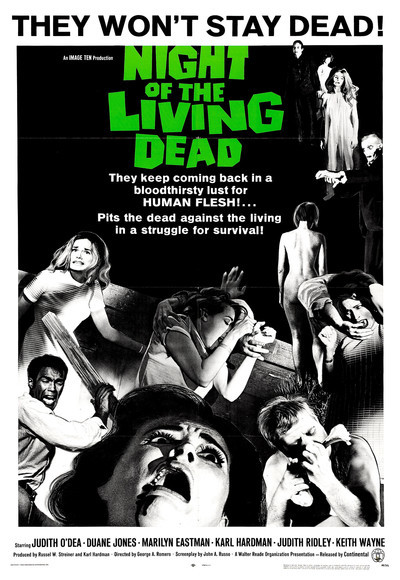Today we have on The Plutonian an exciting new horror writer, Lewis Richmond! Lewis is about to release a new short story collection called The Wisdom of Silenus and Other Strange Tales from Dunhams Manor Press. This will be his first published collection and I am sure it will not be his last.
It must be exciting having your first collection coming out soon! Can you talk a little about why you decided to write fiction? Do you see yourself as a ‘horror’ author? Or are you interested in writing in a wide range of genres?
Thank you. I’m glad to be doing an interview, something I never would’ve imagined taking place. I’m also grateful for Jordan Krall’s (from Dunhams Manor Press) willingness to publish my debut collection.
I don’t mind being called a “horror” writer, although the label is a broad one. I personally prefer the term “Gothic,” but that might be too narrow for some people. To be honest, I didn’t discover the beauty of horror fiction until late. I had some prior experience with the genre itself when I was younger. I read some of Lovecraft’s work as well as Clive Barker’s Books of Blood, but my understanding of it was superficial at the time. I ended up taking a lengthy detour through philosophy before I eventually arrived where I am today. I initially wanted to pursue an academic career, doing some form of scholarly work in both hermeneutics and narrative theory; however, personal setbacks derailed what I thought was my calling. My undergraduate GPA, while not necessarily bad, was less than ideal for attending a suitable graduate program, a problem caused primarily by depression. Luckily, I encountered a quote by someone by the name of Thomas Ligotti in the opening of Ray Brassier’s Nihil Unbound. Shortly afterward I ended up selling most of my philosophy books and decided to devote my time to writing fiction. I don’t regret my decision.
The first thing that struck me after finishing the collection, was how classical the structure of the stories were. In terms of style they really could have been written in 1918. They remind me of maybe Le Fanu stories or E. F. Benson works. The Wisdom of Silenus is full of stories of strange night time visitors, bizarre transformations, and somnambulist descents into darkness. But the collection does not share the more moralistic trappings of classic weird horror. I would say that it follows a more post-Ligottian depressive or abysmal viewpoint. What stories/authors would you say were influences on your writing?
The only story I’ve read of E. F. Benson’s is “The Room in the Tower,” which I thought was a wonderful example of a classical ghost story. I’ve yet to read anything from Le Fanu. But I think it’s fair to say I’m influenced by quite a few writers, the most prominent being Ligotti. I was already sympathetic towards Arthur Schopenhauer’s pessimistic worldview before I discovered the work of Ligotti, so it was exciting for me to encounter certain parallels between the two. Ligotti also enabled me to understand the cosmic horror behind Lovecraft’s work. Whether good or bad, Ligotti has a sort of looming presence in weird fiction (another acceptable label). There’s a certain anxiety associated with approaching anything he’s written, at least for me. As far as the “classics” are concerned, Poe and Lovecraft have also been major influences on my writing. Ambrose Bierce, especially his delightful cynicism, is certainly there as well. Some contemporary writers (not including Ligotti) I admire include Mark Samuels, Jon Padgett, and Christopher Slatsky. There are certainly more out there, but it would be silly to compile a long list.
You used the word “abysmal” to describe my work, which is perhaps appropriate. Intellectually speaking, I’m a pessimist who’s inclined to believe that existence is an ontological mistake. I can’t prove that such is the case, but I believe I’m entitled to the experiential data I’ve accumulated over the years. While religion is a sensitive subject for me, I will say that I sympathize with the philosophical doctrines of Buddhism as well as Christianity. The latter is reflected in my fascination with the so-called “problem of evil,” something which is dealt with sporadically throughout The Wisdom of Silenus. Having said that, I don’t think philosophical (or even religious) pessimism is an intrinsic feature of weird fiction as a whole. There are various competing worldviews available to writers working within the genre; I’m simply open about where I stand with regard to the matter. Of course, I hope someone who doesn’t share my own worldview can enjoy the book for reasons unrelated to its candid philosophy.
I grew up waiting for horror films to show up on late night cable and searching video stores for strange and dark thrills. I think in this era it’s hard to not have been affected by horror cinema. Would you consider horror cinema to have influenced you at all?
I don’t think it’s possible to not be influenced by horror cinema. When I was much younger, I was always fascinated by the movie Alien, especially Giger’s beautiful biomechanoid “villain.” More recently, I’ve come to admire the work of Guillermo del Toro; both The Devil’s Backbone and Pan’s Labyrinth are fantastic films, not to mention superb examples of what a “weird” story should look like on the big screen. This shouldn’t be surprising given that del Toro himself is an astute admirer of writers such as Lovecraft and Machen.
Do you think writers have a responsibility to be socially conscious? Do you feel that a writer should always be engaging with social issues or does a writer not have a responsibility to society? Or should a writer be able to write just for literature's sake?
I think everyone has certain moral obligations. However, I don’t personally believe a writer must include his or her own socio-political views in the stories they write. They certainly can, but it’s not a moral requirement. In other words, it’s possible for both the political and the aesthetic realms to overlap, but it’s also possible for them to occupy their own respective space. Speaking as a pessimist, I think every socio-economic system is intrinsically flawed, so I don’t place a great deal of faith in “society.” Again, we all have moral obligations, but the idea of moral development occurs, I believe, primarily on the level of the individual. I think a lot about injustice, but I believe it’s so prominent because the world itself is built on suffering and oppression, metaphysically speaking. When we attempt to engage in political action or discourse, we are (usually) unknowingly trying to address metaphysical problems which don’t really have practical solutions. There’s a certain “tragic” aspect to the socio-political realm for this reason.
Why is the horror genre important to you? Should the horror genre be taken seriously or is it just entertainment?
I find the genre to be strangely cathartic. There’s a special kind of self-mastery that takes place when one presents negative phenomena aesthetically. There’s even a certain “religious” element to the process of actually writing horror, though I don’t know how to explain it adequately. I suppose it has something to do with the concept of the sublime. As far as your second question is concerned, I don’t see why horror as a genre can’t be both a worthy aesthetic pursuit on its own as well as entertainment. There’s plenty of available literature as well as movies which suggest that that’s the case.
If you could go back in time and steal three short stories from other writers, dead or alive, and claim them as your own, what stories would you take?
There are quite a few Ligotti pieces I could mention, but I suppose “Vastarien” would be the one story of his I wish I had written. Heinrich von Kleist’s “The Foundling” is another one. I’m currently trying to create my own rendition of his fantastic story, an endeavor which is probably motivated by writer’s envy. Poe’s “The Fall of the House of Usher” is perhaps one of the many paradigms of weird fiction, so I feel compelled to include it as well. All three are anxiety-inducing insofar as they’re examples of what any writer working within the genre must ultimately contend with. Honorable mention would have to go to Mark Samuels’ “The White Hands,” a story I believe will be canonized as a grand example of weird fiction. Another would have to go to Jon Padgett’s The Secret of Ventriloquism; I think it’s cohesiveness as a collection is something any writer ought to strive for, assuming their intent is to convey a “worldview” of sorts. Ligotti himself never wrote a collection of short stories as cohesive as Padgett’s debut book.
Your stories contain a lot of musing on philosophical matters. Do you consider fiction more as a means to speculate on reality and to try to achieve a better understanding of our place in it, or is it more that reality is unknowable and fiction is a means to sort of play and come to terms with the unknowable? Or maybe something else?
I don’t believe the universe itself is a rational place, so I’m content with the notion that fiction is a way to come to grips with the unknowable. There are certain problems which neither science nor philosophy seem equipped to deal with because of the “humanism” which tends to accompany both. Historically speaking, the assumption on the part of the philosopher or the scientist is that the world is a rational totality, and that there is a correspondence that takes place between objective reality and the mind. Reason has a role to play in the daily life of human beings, but it seems ineffective when it’s applied to questions regarding the whole. This problem concerns theological questions as well. Both theism and naturalism are equally absurd to me, even though rational arguments have been proposed for both. As a writer, I’m perfectly willing to criticize both worldviews. For instance, “The Great Chain of Being” is a critique of the traditional notion of theodicy, while “Misophonia” is a critique of a more modern worldview grounded in scientism. My reason tells me that if the world was created by a transcendent being, then the entity responsible for its existence must be malevolent due to the amount of gratuitous suffering the world contains. But my reason also tells me that if the world is a closed physical system, then it must be inherently stupid. I find myself oscillating between these two options whenever I try to make sense of the world with my intellect.
In any case, I suppose I view fiction, at least the kind of fiction I write, as an exploration of failure. In other words, it’s possible to use fiction as a way to accept the unacceptable by transforming the world into an aesthetic object without, however, discovering any definitive answers regarding why (in my case) things are so crummy.
So when can we expect The Wisdom of Silenus and Other Strange Tales to be available for purchase? And what’s next?
The Wisdom of Silenus and Other Strange Tales should be available through Dunhams Manor Press’ main website sometime late winter/early spring. Jordan Krall works as a writer, editor, and publisher of weird fiction, so some patience is needed. He’s concerned with producing high-quality work, which leads me to believe that whatever flaws the book might have will be the result of my own shortcomings. As for the present, I’ve already started working on a second collection of short stories. I’ll have a better sense of direction as far as writing projects are concerned once I see what kind of reaction my debut collection receives.





